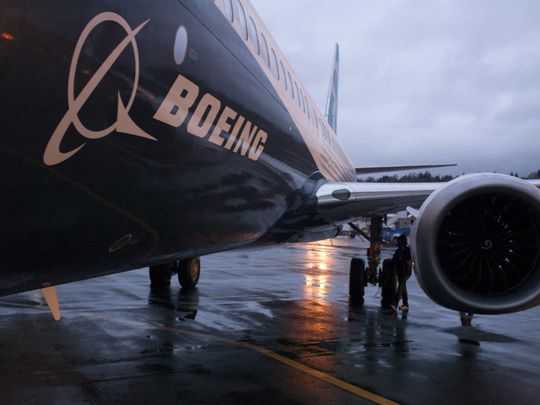The Middle East is set to see a considerable influx of new commercial aircraft in the coming years, with Boeing projecting that 3,025 new planes will be delivered to the region between 2023-2042. According to the annual long-term forecast of demand for commercial aeroplanes and services, close to half of these deliveries will be widebodies, and the region’s fleet of dedicated freighters is expected to more than double to 180 jets by 2042.
Boeing estimates that two-thirds of the new deliveries will support air traffic and cargo growth, with the remaining one-third replacing older aeroplanes with more fuel-efficient models. This surge in commercial aircraft will generate a demand for $335 billion in aviation services, including maintenance, repair, training, and spare parts.
The release of this forecast comes just ahead of the Dubai Airshow, which is scheduled for November 13. All eyes are on which UAE or Gulf airlines will be making fleet expansion orders, with Emirates, flydubai, and Riyadh Air being the main focus. In terms of aircraft types, Boeing projects that 45% of deliveries to Middle East airlines over the next 20 years will be widebodies, with the single-aisle fleet also expected to double as low-cost carriers and short-haul networks continue to grow.
One area of particular interest is the rise of Premium Economy sections on aircraft, as airlines have been expanding and leveraging these spaces to boost revenue and enhance the travel experience for passengers. This trend is anticipated to persist both regionally and globally in the upcoming generation of air travel.
Overall, the Middle East is on track to see significant expansion and modernization of its commercial aircraft fleet, with a focus on accommodating larger volumes of passengers and meeting the growing demand for air travel in the region.

I have over 10 years of experience in the field of cryptocurrency and blockchain technology. I have attended numerous conferences and events around the world, and my work has been featured in major publications such as CoinDesk, Bitcoin Magazine, and Yahoo Finance.

